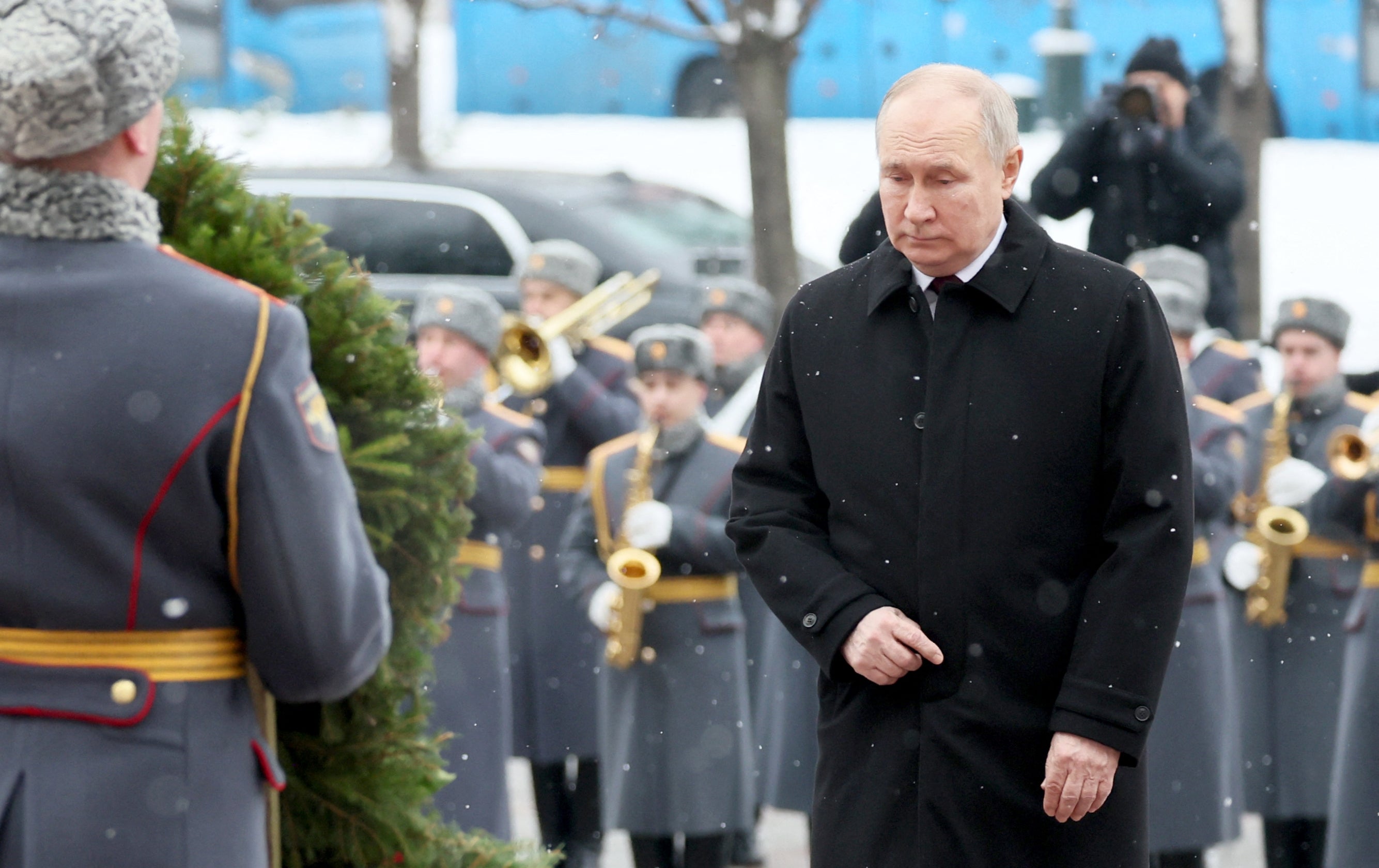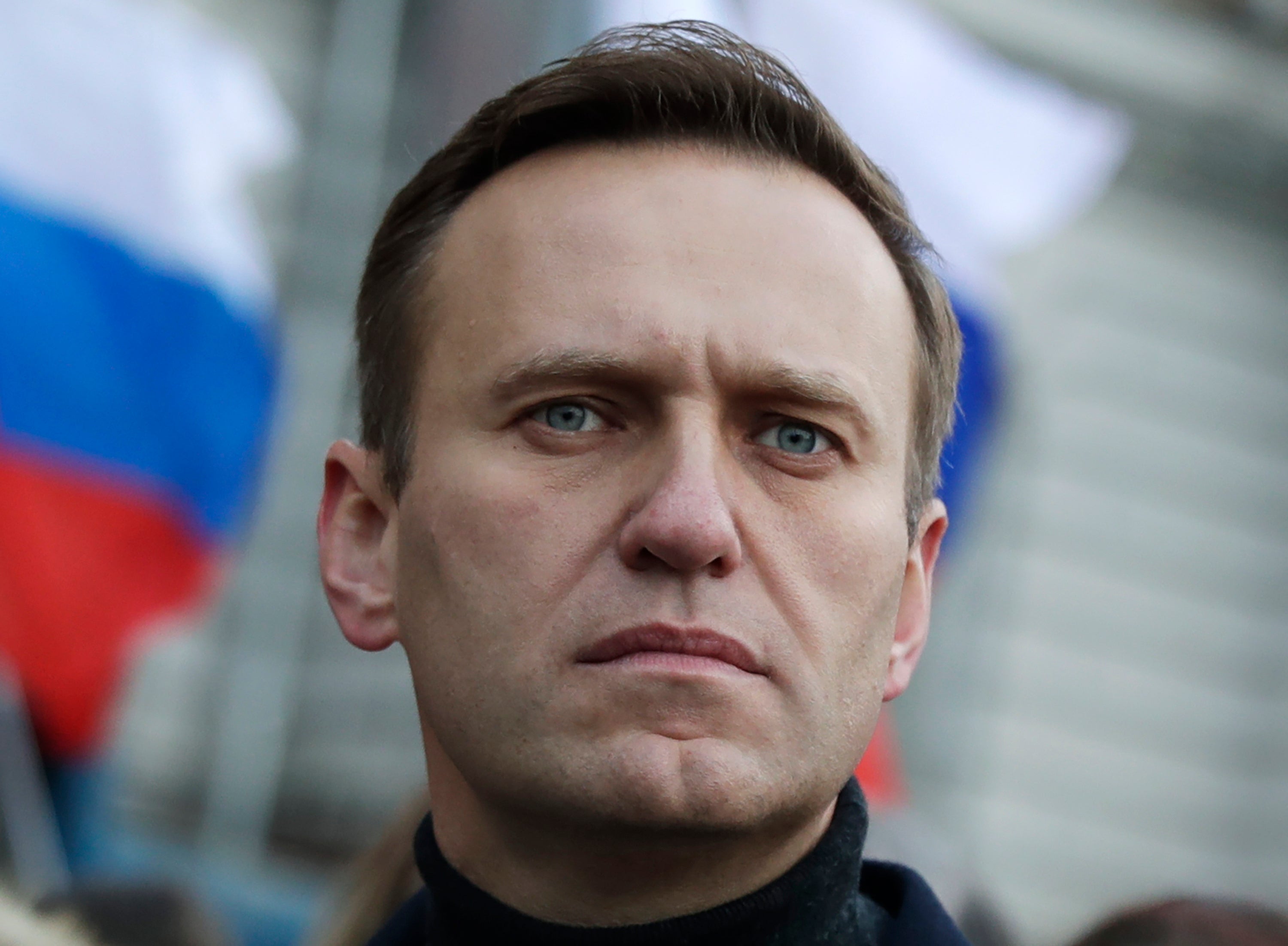Vladimir Putin has ‘something fundamentally wrong’ with his health, ex-MI6 boss suggests
Sir Richard Dearlove told by sources in Europe that the Russian president could have Parkinson’s
Vladimir Putin is likely to have something “fundamentally wrong” with his health and may be suffering from Parkinson’s disease, a former head of MI6 has been told.
Sir Richard Dearlove, who headed the British intelligence service between 1999 and 2004, said his sources in Europe believe Mr Putin’s health is deteriorating.
He said one suggestion is that the Russian president is suffering from Parkinson’s disease, one of the symptoms of which can be delusions.

Sir Richard said this might explain Mr Putin’s “paranoia” and the death of prominent opposition figure Alexei Navalny.
It comes after much speculation about Mr Putin’s health in recent years, with some unsubstantiated theories including him having cancer or using a body double.
Asked on LBC about the state of Mr Putin’s health, Sir Richard replied: “I do not have a clear answer to that but I have contacts and friends still in Eastern Europe who think there is something fundamentally wrong with him medically. But I’m not a clinician.”
Expanding on what illness Mr Putin may have, he said: “Probably Parkinson’s which of course has different representations, different variations, different seriousness.
“But if the man is paranoid, and I think the murder of Navalny might suggest a certain paranoia, that is one of the symptoms.”

Chief Kremlin foe Mr Navalny died last Friday in an Arctic prison where he was kept in solitary confinement for up to two weeks at a time.
His death sparked global outrage, with foreign secretary Lord David Cameron saying: “It’s clear that the Russian authorities saw Navalny as a threat and they tried repeatedly to silence him.”
Mr Navalny had been behind bars since January 2021, when he returned to Moscow after receiving life-saving treatment in Germany from novichok poisoning, an attack he blamed on the Kremlin.
He was then moved to the remote “Polar Wolf” Arctic prison late last year and faced multiple sentences on charges the international community and Mr Navalny’s supporters believe were trumped up to try and silence him.

His death came a month before a presidential election where Mr Putin is expected to easily claim re-election, a vote that Mr Navalny repeatedly railed against, even in prison.
The Kremlin has denied involvement in Mr Navalny’s death.
Since his political opponent’s death, Mr Putin was seen taking flight on a new nuclear-capable bomber plane on Thursday. The move has been seen by the West as a bid to send a reminder of Russia’s nuclear might amid soaring tensions with the West over the fighting in Ukraine.
Referring to this, Sir Richard told LBC: “Putin is always postured - that’s part of his character and the rumours of his illness maybe make it more important now that he postures in a way that suggests he isn’t ill, if he is.
“This is not a change this is something he’s been doing.”
Join our commenting forum
Join thought-provoking conversations, follow other Independent readers and see their replies
Comments
Bookmark popover
Removed from bookmarks